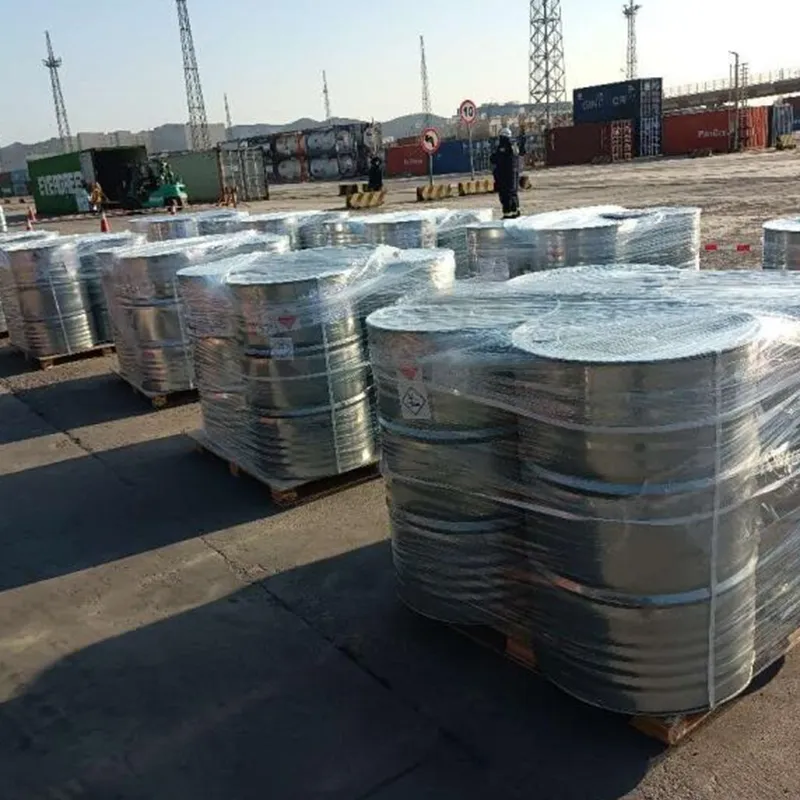
citrus fiber emulsifier
The Role of Citrus Fiber Emulsifiers in Food Products
Citrus fiber emulsifiers have begun to emerge as a vital ingredient in the food industry, gaining attention for their multifunctional properties. Derived from the peels and membranes of citrus fruits such as oranges, lemons, and limes, citrus fiber offers a natural solution for enhancing food quality and texture. Its application stretches across a variety of products, showcasing its versatility and effectiveness.
One of the primary benefits of citrus fiber emulsifiers is their ability to stabilize emulsions. Emulsions are mixtures of two immiscible liquids, like oil and water, which are commonly found in salad dressings, sauces, and dairy products. The challenge in creating lasting emulsions lies in preventing the separation of these liquids. Citrus fiber acts as a natural emulsifying agent, helping to bind these liquids together and ensuring a consistent texture throughout the product’s shelf life. In this way, manufacturers can enhance the visual appeal and mouthfeel of their products, ultimately leading to higher consumer satisfaction.
Additionally, citrus fiber is celebrated for its functional fiber content. This makes it an attractive option for health-conscious consumers. Incorporating citrus fiber into food products can increase their dietary fiber content, promoting digestive health and offering various metabolic benefits. As consumers become more aware of the health benefits associated with dietary fiber, products featuring citrus fiber emulsifiers have the potential to capture a growing market segment focused on nutrition.
citrus fiber emulsifier

Moreover, the use of citrus fiber as an emulsifier aligns with the increasing demand for clean-label products. More consumers are seeking transparency in food ingredients, preferring natural and minimally processed components over synthetic additives. Citrus fiber fits this trend perfectly, as it is derived from the whole fruit and offers a recognizable label that resonates positively with consumers. As a result, food manufacturers can enhance their product’s appeal without compromising on health or sustainability aspects.
Another significant advantage of citrus fiber emulsifiers lies in their ability to improve the shelf life of food products. By stabilizing emulsions and preventing phase separation, citrus fiber helps maintain the quality and freshness of food items over extended periods. This is particularly beneficial for manufacturers looking to minimize waste and ensure that their products remain marketable, even after extended storage.
Furthermore, the incorporation of citrus fiber has economic advantages as well. It can replace other more expensive emulsifiers, while still providing the necessary functionality without compromising on quality. This shift can lead to significant cost savings for companies, making citrus fiber an attractive alternative in a competitive market.
In conclusion, citrus fiber emulsifiers present a wide range of benefits for both manufacturers and consumers alike. From enhancing the stability and texture of food products to boosting dietary fiber content and aligning with clean-label trends, the advantages are substantial. As the food industry continues to evolve towards healthier, more natural products, the role of citrus fiber as an emulsifier is likely to expand, solidifying its place as an invaluable ingredient in modern food formulations. Embracing this natural solution can pave the way for innovative and healthier food products that meet the demands of today’s discerning consumers.
-
Sodium Dichloroisocyanurate Safety Handling ProtocolsNewsJul.29,2025
-
Mining Chemicals for Copper Extraction Processes GuideNewsJul.29,2025
-
Fertilizer for Sale Shipping and Storage TipsNewsJul.29,2025
-
Dimethyl Disulfide as Sulfurizing AgentNewsJul.29,2025
-
Benzotriazole Safety Data Handling and Storage GuidelinesNewsJul.29,2025
-
Ammonium Bicarbonate Safety Handling Storage GuidelinesNewsJul.29,2025
-
The Transformative Role Of Trichloroisocyanuric Acid in Water TreatmentNewsJul.23,2025
Hebei Tenger Chemical Technology Co., Ltd. focuses on the chemical industry and is committed to the export service of chemical raw materials.
-

view more DiethanolisopropanolamineIn the ever-growing field of chemical solutions, diethanolisopropanolamine (DEIPA) stands out as a versatile and important compound. Due to its unique chemical structure and properties, DEIPA is of interest to various industries including construction, personal care, and agriculture. -

view more TriisopropanolamineTriisopropanolamine (TIPA) alkanol amine substance, is a kind of alcohol amine compound with amino and alcohol hydroxyl, and because of its molecules contains both amino and hydroxyl. -

view more Tetramethyl Thiuram DisulfideTetramethyl thiuram disulfide, also known as TMTD, is a white to light-yellow powder with a distinct sulfur-like odor. It is soluble in organic solvents such as benzene, acetone, and ethyl acetate, making it highly versatile for use in different formulations. TMTD is known for its excellent vulcanization acceleration properties, which makes it a key ingredient in the production of rubber products. Additionally, it acts as an effective fungicide and bactericide, making it valuable in agricultural applications. Its high purity and stability ensure consistent performance, making it a preferred choice for manufacturers across various industries.











